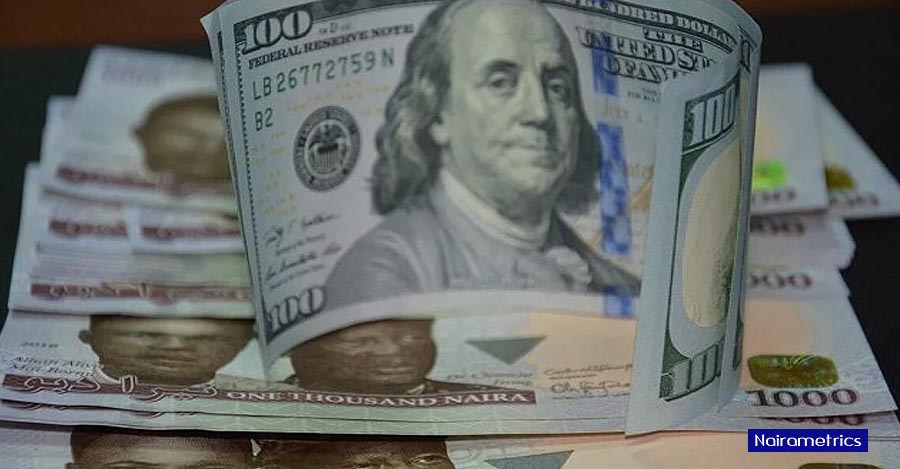The exchange rate between the naira and the US dollar has fallen beyond the N700/$1 threshold at the parallel market on Wednesday, 27th of July 2022, despite starting the day at N675/$1. This is according to information from Bureau De Change operators in Lagos State.
Similarly, at the cryptocurrency P2P Exchange market, the rate has fallen to N702.8/$1, a 5.4% depreciation compared to N667/$1 recorded in the previous trading session. Naira has been under immense pressure in the past two weeks, falling from an average of N618 to a dollar recorded two weeks ago.
Bureau De Change operators have cited a lack of FX and a surge in demand for the recent uncontrolled uptrend recorded in the market. In the same vein, some bank users who have FX in their domiciliary account told Nairametrics that they have not been able to withdraw their funds from the bank due to tightened liquidity.
In the same vein, the exchange rate at the official market has also witnessed a downtrend in recent times, depreciating to N430/$1 despite recording an average rate of N416/$1 in the previous year. This is following more tightened liquidity at the Investors and Exporters window.
The Central Bank raised the benchmark interest rate to 14% in July 2022, following a similar 150 basis points increase in May in order to curb rising inflationary pressure as well as encourage FX inflow into the economy.
- However, despite the move by the apex bank, the exchange rate is yet to moderate, with more pressure now on the country’s external reserve. Meanwhile, the Central Bank stated that the external reserve increased by $620 million in the month of June 2022 as a result of inflows from non-oil sources.
- According to the communique of the Monetary Policy Committee of the CBN, “the MPC noted that foreign exchange inflow through the RT200 FX Programme in Q1 and Q2, 2022, had increased substantially to approximately US$600 million as of June 2022.”
- “Members also noted the increase in Diaspora remittances as a result of the Naira for Dollar incentive and urged the Bank not to relent in its efforts to encourage foreign exchange inflow to the economy.”
